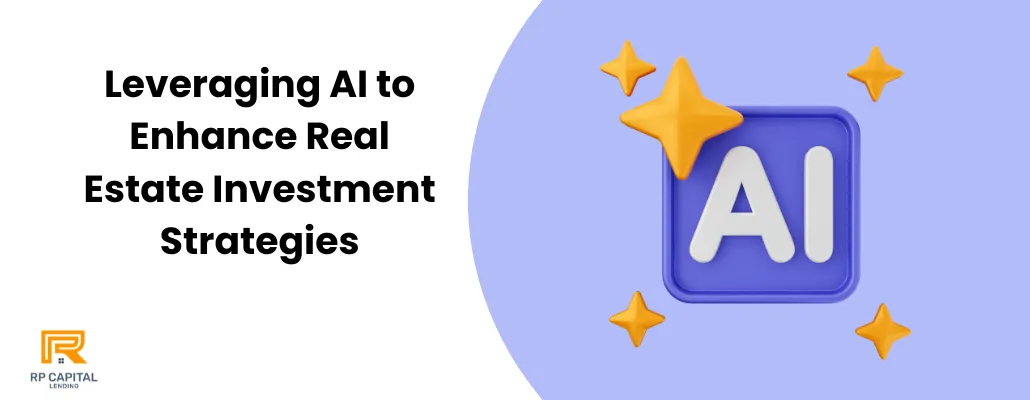Blog

Leveraging AI to Enhance Real Estate Investment Strategies
Have you ever wondered how some real estate investors seem to always be a step ahead? The secret might just be their use of artificial intelligence (AI).
By integrating AI into your investment strategy, you can uncover hidden opportunities, predict market trends, and make smarter, data-driven decisions.
How AI is Changing the Game in Real Estate Investing
1. Market Analysis and Prediction
AI algorithms excel at processing large volumes of data quickly. Real estate investors use AI to analyze market trends, demographic changes, and economic indicators, enabling them to predict which areas are likely to appreciate in value. Tools like Zillow's Zestimate leverage AI to provide real-time property valuations, helping investors make quick decisions.
2. Enhanced Property Searches
AI-driven platforms can sift through thousands of listings to find properties that match specific criteria, such as location, price, and ROI potential. This not only saves time but also provides a competitive edge by identifying lucrative opportunities that others might overlook.
3. Risk Assessment
AI tools assess risks by analyzing historical data and current market conditions. They can predict the future performance of a property, taking into account factors like neighborhood crime rates, school district quality, and local job market health.
4. Virtual Property Tours and Management
AI-powered virtual tours give investors a realistic view of a property without needing to visit in person. Additionally, AI can help manage properties by automating tasks such as tenant screening, lease management, and maintenance scheduling.
5. Real-time Decision Making
With AI, real estate investors can receive real-time updates and alerts about market shifts or new listings, enabling swift decisions that capitalize on market opportunities before they disappear.
Frequently Asked Questions (FAQs)
Q1: How accessible are AI tools for beginner real estate investors?
Many AI tools are user-friendly and designed with beginners in mind. Platforms like Redfin provide AI-enhanced search engines to help new investors find and evaluate properties effectively.
Q2: Can AI really predict real estate market trends accurately?
While no prediction is 100% accurate, AI tools analyze vast amounts of data to provide forecasts that are significantly more precise than traditional methods. These predictions continuously improve as the AI learns from new data.
Q3: Are there any risks associated with using AI in real estate investing?
The primary risk is over-reliance on AI without human oversight. It's important to use AI as a tool, not a replacement for human judgment. Investors should always perform their own due diligence.
Q4: How does AI affect the overall cost of real estate investing?
Initially, using AI tools might increase costs due to subscriptions and software fees. However, the long-term savings and increased ROI due to better-informed decisions generally offset these initial expenses.
Q5: What is the future of AI in real estate investing?
The role of AI is expanding rapidly. Future advancements are expected to provide even deeper insights into market dynamics, further automating property management and enhancing virtual real estate experiences.
Conclusion
In conclusion, Artificial Intelligence represents a pivotal advancement in technology, reshaping industries and enhancing human capabilities. As AI continues to evolve, its applications expand, automating routine tasks and providing sophisticated analytics.
Its transformative potential is immense, promising not only to increase efficiency and accuracy across various sectors but also to drive significant innovation and progress in the coming years.
RP Capital Lending is a d.b.a of RP Capital Partners Inc (NMLS # 2469193) | Privacy Policy
Copyright © 2022. All Rights Reserved.
Disclaimer: Loans only apply to non-owner occupied properties. Rates, terms and conditions offered only to qualified borrowers, may vary upon loan product, deal structure, other applicable considerations, and are subject to change at any time without notice.

